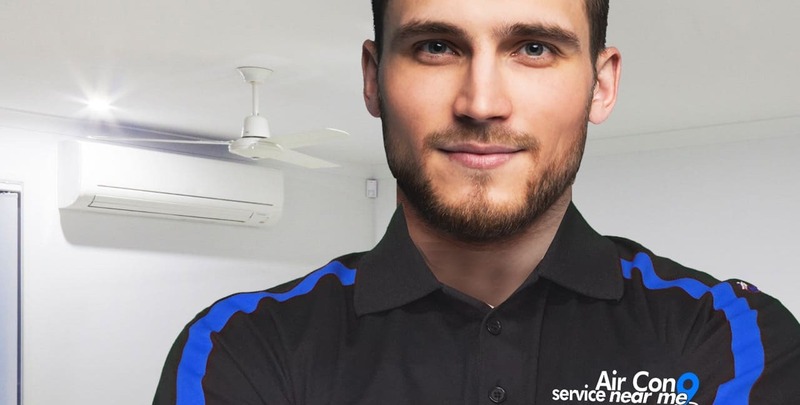When it comes to your home heating and cooling, one of the toughest calls to make is knowing when to replace your air conditioner and not just call someone to fix your existing system.
One of the biggest concerns people share is the cost of buying a new air conditioning unit instead of simply getting someone in to repair your old one. And those concerns are understandable on the surface. But old AC units – even the most well-maintained and regularly serviced air conditioner – can lead to higher energy bills, frequent breakdowns and inconsistent air temperatures.
A good air conditioner plays a big role in keeping your home comfortable, energy-efficient and cost-effective. Identifying the signs that your aircon is beyond repair and that it’s time to replace it can save energy, money and a heap of frustration. If your current air conditioner isn’t blowing the cool air you want this summer, it might be time for a new one.
Typical Lifespan of Air Conditioning Systems
Like any major electrical appliance, every air conditioning unit has a shelf life. Most air conditioning units will start showing signs of slowing down near the end of their natural lifespan. Therefore, knowing what that lifespan is can help you plan when to replace your air conditioner.
The life expectancy of most air conditioners varies depending on the type of unit and if you’ve had yours serviced regularly. Here’s what to expect:
- Split systems: With proper maintenance, your split system will last around 10-15 years.
- Ducted systems: Consistent servicing should give you a good 15-20 years.
- Window units: Operates for 8-12 years depending on usage and care.
- Portable units: These have a shorter lifespan of 5-10 years.
When your old air conditioner is near the end of its lifespan, replacing it with a new AC unit can save you energy and repair costs.

Benefits of Replacing Instead of Repairing
Replacing your older air conditioning unit instead of repairing it offers several long-term benefits beyond simply avoiding constant breakdowns.
Modern air conditioners, especially those with inverter technology, ensure consistent air temperature and greater energy efficiency (along with the lower associated energy costs). A new unit improves indoor air quality with better air filters and more efficient cooling systems. You’ll get the cold air you want in summer and, if you have a reverse cycle air conditioner, the warm air you need in winter. It is quieter, requires fewer repairs and can even increase your property’s value.
Replacing your heating, ventilation and air conditioning (HVAC) system is an investment in comfort, increased energy efficiency and cost savings.
Signs It’s Time to Replace Your Air Conditioning Unit
Knowing how to tell when to replace your air conditioner can help you avoid costly repairs and keep your home comfortable. Here are the key indicators to look out for:
- Frequent breakdowns: Repeated repairs mean your air conditioning unit is near the end of its life.
- Higher energy bills: Older air conditioners lose efficiency in maintaining air flow and your desired temperature. Therefore they cost more to run.
- Inconsistent air temperature: Struggling to maintain a desired consistent temperature means your cooling system can’t keep up.
- Strange smells or noises: These coming from your air conditioner can point to internal mechanism issues or serious wear and tear.
- Refrigerant leaks: A major repair like this often means it’s time for a new system replacement.
- Excess moisture: If your air conditioning unit is generating more moisture than normal, or has become less capable of controlling humidity, it may no longer be functioning effectively.
If you notice strange noises or constantly need to adjust temperature settings, getting a new air conditioning system might be the most cost-effective and energy-efficient long-term solution.
Why Older Air Conditioners Can Be Expensive
Old air conditioners, especially those that don’t enjoy regular maintenance, will drain your wallet and make your home uncomfortable.
As air conditioning units age, their energy efficiency declines, and your power bill takes a hit. Frequent repairs become the norm as internal mechanisms (such as the condenser coils) wear out and costs escalate. You may also notice inconsistent air temperature, cold zones or warm air where you don’t want it. Old systems with worn or dirty air filters can affect indoor air quality and reduced efficiency means they work harder and consume more energy.
Upgrading to a new unit eliminates all these problems and gives you better value in the long run.

Why Use a Licensed Air Conditioning Technician
Using a licensed service technician ensures a safe and effective air conditioner installation.
Qualified and experienced aircon technicians can assess whether it makes more sense to replace your existing air conditioner or whether it has one major repair left in it. They handle complex repairs like refrigerant leaks or issues with indoor and outdoor units with precision. They also ensure your new air conditioner is energy efficient and meets Australian standards including AS/NZS 3000:2018 (Wiring Rules) and AS/NZS 5141:2018 (Residential Heating and Cooling Systems).
By choosing a qualified technician, you avoid potential hazards, maintain your warranty and extend your system’s life. A licensed air conditioning specialist guarantees quality work you can trust.
When to Service or Repair Your Air Conditioner
Of course, there can be many cases in which repairing or servicing your air conditioner is the smart and cost-effective option.
If your unit is relatively new, has been serviced regularly and the issue is minor – like a clogged air filter, worn-out condenser coils or a simple refrigerant top-up – then repairing is the way to go. Routine maintenance like cleaning the inside and outside units or replacing the filters can also get performance back to normal without replacing.
Fixing these minor issues ASAP can extend the life of your air conditioner without the need to prematurely consider replacing your system.
Make the Right Choice for Your Cooling Needs
In the end, finally biting the bullet and deciding when to replace your air conditioner can be daunting. However, the right air conditioner can also be the best decision for your comfort, budget and energy efficiency.
An old air conditioner will give you constant breakdowns, higher energy bills and repair costs and inconsistent cooling. On the other hand, a new system will give you better performance and cost savings. By knowing the signs, comparing repair and replacement costs and working with a licensed air conditioner specialist you can make an informed decision.
Upgrading to a new air conditioner will give you consistent air temperature, lower energy bills and a reliable cooling system that will keep your home comfortable for years to come.
Please note: Thanks for reading our blog “When to Replace Your Air Conditioner and Not Repair It”. This information is provided for advice purposes only. Regulations differ from state to state, so please consult your local authorities or an industry professional before proceeding with any work. See our Terms & Conditions here.

